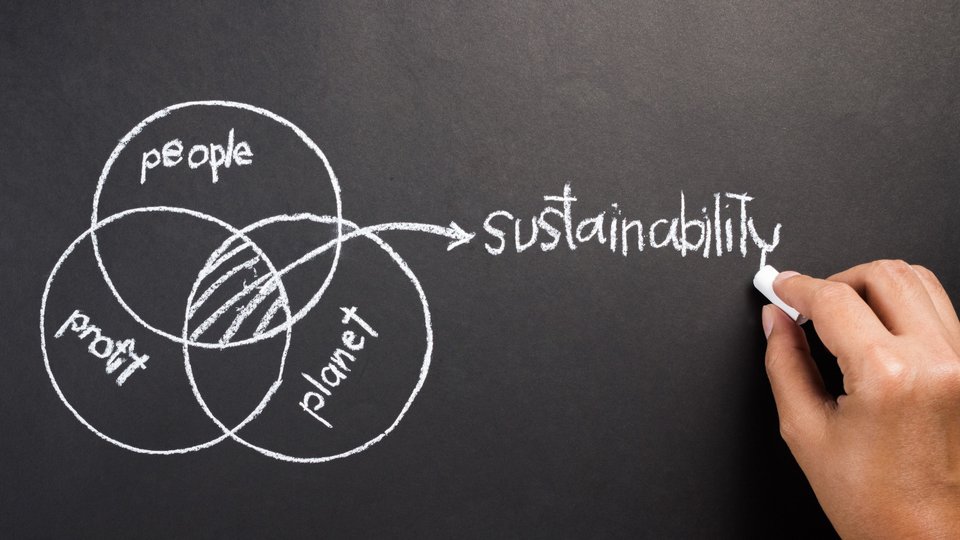Operations
Can QSRs win the quest for environmental sustainability?
Food production is a primary contributor to climate change. QSRs are turning attention to corporate sustainability in a bid to reduce food waste, create environmentally friendly packaging materials and use smarter food production techniques.

April 21, 2023 | By Philip Daus and Dave Clement, partners at Simon-Kucher
Consumer interest in sustainability is growing. What can fast-food restaurants do to keep up?
As the world comes to terms with the urgency of the climate crisis, we must reflect on the fast-food industry and its implications on the environment. Food production is a primary contributor to climate change, so fast food or quick-service restaurants must redirect more effort toward corporate sustainability.
Consumers increasing interest in embracing eco-friendly options and reducing their carbon footprint is opening growth opportunities for restaurants. According to a recent Simon-Kucher Restaurant Sustainability Study, dining at a green restaurant is worth a price premium of more than 10% for most customers — and in some cases an additional 20% for sustainable services. The younger generation, Gen Z and Millennials, are more sensitive to environmental issues and are willing to pay more than the older generation. Research reveals that 50% of Gen Z and 36% of millennials are willing to pay a price premium of more than 20% for sustainable restaurants.
So, does this willingness to pay translate to the QSR sector?
Sustainability in the QSR industry
It's fair to say QSR is embedded into society with how their convenience and speed have transformed the way we eat. Synonymous with fast-food chains such as McDonald's and Burger King, the focus of these QSR businesses is speed, efficiency and functionality, which has won over consumers from the start.
But as much as the ubiquity of fast-food chains spells convenience and comfort, the repercussions on the environment tell another story.
Three main ways the fast-food industry impacts the environment:
- Food production
As burgers are vastly popular, beef is a fundamental food item within the QSR industry. But a combination of factors — fertilizer, farming equipment, methane gas, transportation — all connected to livestock rearing and production are adding to the climate crisis. Taking all this into account, meat production was found to be responsible for roughly 60% of all greenhouse emissions from food production. This figure was twice the pollution generated by the production of plant-based foods.
- Packaging material
The prominent characteristic of a fast-food restaurant is food on the go. This convenience typically comes with massive amounts of non-sustainable, single-use containers and cutlery that add to environmental pollution. Packaging waste also exists in the form of plastic and cardboard used for shipping. Cutting down on single-use plastics is, therefore, crucial in the fight against the climate crisis. Switching from harmful, disposable packaging to options made of reusable resources helps reduce litter which brings down the impact on the environment.
- Food waste
The convenience of purchasing affordable food means we are also more likely to waste food instead of saving it for later. Throwing away food indicates we are squandering the resources that went into growing, transporting and preparing it. And the amount we throw away contributes to significant greenhouse gas emissions. Before food ends up in landfills, it requires further transportation to the site which adds to the carbon footprint. And in the landfill, rotting food emits harmful methane gas that exacerbates the climate crisis.
Is fast food sustainable?
Given the magnitude of the QSR industry, and its outsized scale and impact on the environment, can fast-food businesses ever be sustainable?
Consumers increasing interest in sustainability has been pushing QSRs toward proactive environmentally friendly actions. People want more than general corporate sustainability communication: they want concrete sustainability steps.
For our Restaurant Sustainability Study respondents, efficient food waste management, eco-friendly packaging material and reducing emissions from distribution are critical restaurant sustainability markers.
Many QSRs have acquired a head start by implementing changes to reduce greenhouse gas emissions across their supply chains. Companies are also making conscious decisions to use less water, use local and sustainable supply chain options and switch from plastic to paper packaging.
Three ways QSR businesses can attract the eco-conscious consumer
- Efficient food waste management
Food waste is not limited to consumer leftovers. Vegetable peels from food preparation often end up in the bin. But now, businesses are embracing eco-friendly steps to prevent food waste from ending in landfills by implementing composting programs at their restaurants. For instance, many Subway franchisees participate in composting. Apart from creating quality compost, it also helps to reduce carbon footprint and save on transportation and dumping fees. Restaurant composting can also be a competitive advantage as environmentally conscious consumers can choose to favor businesses that partake in this activity.
- Environmentally sustainable packaging material
The QSR industry can make substantial changes by using less packaging and replacing plastic with paper or recycled materials. Reusable cutlery and dishes for eating in also make a big difference. With consumers no longer tipping their used plastic dishes into the bin, harmful plastic negatively affecting the environment is prevented. Fast-food chains like McDonald's aim to use 100% renewable materials in their primary packaging by 2025. As part of Starbucks' commitment to reducing single-use cup waste, the multinational coffeehouse encourages customers to bring their own personal reusable cups.
- Reducing emissions from distribution
Businesses can adopt different measures to boost sustainability and reduce emissions. Ditching traditional lighting solutions for energy-efficient light bulbs is a sustainability strategy adopted by many companies. Sourcing local raw materials decreases emissions from transportation. Partnering with sustainable-certified companies also helps QSR businesses to stay on target with their initiatives. These partners are typically updated about environmentally sustainable materials and will make necessary adjustments according to the latest developments in the field. Utilizing energy-efficient light bulbs is another way to embrace sustainability.
QSRs have an opportunity to benefit from a move towards sustainability by leveraging value messaging and piloting eco-locations that tailor to the eco-conscious consumer, in the three growth areas outlined above.
Updating a sustainability strategy can be daunting for many QSR businesses — however, a move toward more sustainable business practices can become a win for the QSR, a win for the customer, and a win for the environment.
Philip Daus and Dave Clement are partners at Simon-Kucher, a pricing and growth consultancy with more than 2,000 employees in 30 countries.
 ChatGPT
ChatGPT Grok
Grok Perplexity
Perplexity Claude
Claude








